How are electrolyte drinks regulated in Bangladesh?

My husband was sipping on a locally-made electrolyte drink after a run on the treadmill when the news of a case filed to ban the product popped up on my social media newsfeed. This particular drink is very popular in my home, and on occasions—mostly after sports—I allow my child to drink it as well. I still have about a dozen packs left in the refrigerator, and I am not sure what to do with them anymore.
Bangladesh Food Safety Authority (BFSA) has recently sued the owners of seven companies for selling five popular brands of electrolyte drink without necessary approvals. The brands are SMC Plus, Aktive Plus, Bruvana, Recharge, and Turbo. In the case filed with the Pure Food Court, arrest warrants have been issued against the top management of the companies, and the board chairman of one of the companies involved in marketing one of the brands has been slapped with a fine of Tk 16 lakhs over the electrolyte drink's unauthorised sale.
While the BFSA should be commended for taking the much-needed initiative to ban the unauthorised sale of these drinks, the obvious question is: why did it take the authority more than two years to file the case? Most of these locally-produced brands have been in the market for some years now. Take SMC Plus for instance: it was launched in March, 2021. From ads to events, these brands have been promoted widely. How is it possible that the food safety authority did not take note of this earlier?
This issue has raised some further questions on the regulation of electrolyte drinks in the country. To start with, which regulatory body should give approval for electrolyte drinks—the Bangladesh Standards and Testing Institution (BSTI) or the Directorate General of Drug Administration (DGDA)? Since electrolyte drink brands claim that the products are hydrants and address issues of blood pressure and fatigue, some might easily mistake them for medicinal supplements. Interestingly, imported electrolytes are being sold with BSTI approval. This addresses the aforementioned question to some extent.
The local electrolyte drinks, however, did not get BSTI approval. Officials of some of the companies have said that they reached out to BSTI and also met the authorities, but according to BSTI officials, since electrolyte drinks do not fall under the compulsory product category, they could not approve it. BSTI would be able to approve the drink once such a category is created. So, how long does the BSTI require to create such a category?
These products are widely consumed globally, and there are best practices in other countries which one can simply study and implement. For instance, in the US, the Food and Drug Administration (FDA) is responsible for regulating the safety of bottled water including those "with flavouring, others may also contain added nutrients such as vitamins, electrolytes like sodium and potassium, and amino acids." The authorities in Bangladesh need only to look at the regulations required and replicate the system for the locally-produced electrolyte drinks.
Imported sports drinks with electrolytes have been available in Bangladesh for a long time now. Interestingly, the import sticker of one of these massively popular global brands flaunts a BSTI seal under BDS 1581:2015, categorised as per BSTI standards as "fruit drinks." Electrolytes are not fruit drinks, therefore BDS 1581:2015 should not apply to it, which means these are being imported and sold under a wrong category, and should be immediately lifted from the market, until a proper BSTI standard can be assigned to them.
In the BSTI list of Bangladesh Standard (BDS) on Agricultural and Food products, there are standards for multiple categories for beverages, including but not limited to: natural mineral water, lassi (yoghurt drink), flavoured milk, fruit drinks, soft drink powder, artificial flavoured drinks, dry cocoa sugar mixtures for drink preparation, carbonated beverages, non-carbonated, and non-alcoholic beverages, among others. Since BSTI covers so many different kinds of drink, there should be no reason why it should not form a category and standards for electrolytes. Perhaps the inexplicable inertia, red tape and gross lack of accountability that are so characteristic of our public institutions are to be blamed for BSTI's inaction and failure.
In the sweltering heat of Bangladesh, it is only normal for people, especially those who are engaged in physically demanding tasks, to resort to drinking fluids with added nutrients, such as the traditional home-made lebur shorbot, plain lemon water, saline, and even electrolytes. Under such circumstance, the regulators should have acted promptly on the request of the companies making electrolyte drinks locally. After necessary testing and review, they should have enabled their sale in the market, especially at a time when we should be promoting the growth of local industries and reducing our import dependence. The price of imported electrolyte drinks is very high in comparison to local options. While a 500ml bottle of a local electrolyte drink costs around Tk 75-80, a 500ml bottle of an imported electrolyte drink costs around Tk 450.
Due to the extreme hot weather conditions the country is witnessing this year, sale of beverages have seen a 20-40 percent spike. Interestingly, both the local and imported electrolytes are still available in the market, especially on online platforms. So, in terms of enforcement, who is going to ensure that these products are not sold until BSTI has tested and approved them? Or are they going to be consumed by the public without BSTI testing or with wrong BSTI labels? In that case, where is the accountability of BSTI here?
It is unfortunate that despite electrolyte drinks being sold in Bangladeshi markets for so long, we are now having to ask these basic food safety questions. While the companies have wronged by selling electrolyte drinks without the necessary assessment and approval from BSTI, what is worse is BSTI's inaction in this regard. They have neither banned the sale of these products in the market, nor have they given it their approval. If these drinks do not meet basic consumption standards then they should immediately be taken off the market. At the same time, BSTI and related bodies should be held accountable for allowing rampant sale of electrolyte drinks (including imported ones under wrong BDS category) in the market without necessary approvals.
Food safety is a critical and highly sensitive issue. The authorities concerned, including BSTI, should immediately look into this and resolve it at the earliest. BFSA should look at the labelling problem of imported electrolyte drinks. The authorities should also check if the BSTI labels on other imported products are incorrect. Most important of all, BSTI should be held accountable for such gross negligence of their responsibilities.
Tasneem Tayeb is a columnist for The Daily Star. Her X handle is @tasneem_tayeb
Views expressed in this article are the author's own.
Follow The Daily Star Opinion on Facebook for the latest opinions, commentaries and analyses by experts and professionals. To contribute your article or letter to The Daily Star Opinion, see our guidelines for submission.

 For all latest news, follow The Daily Star's Google News channel.
For all latest news, follow The Daily Star's Google News channel. 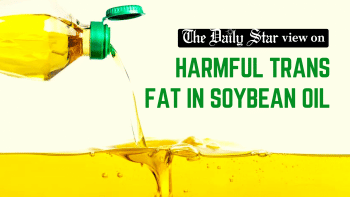
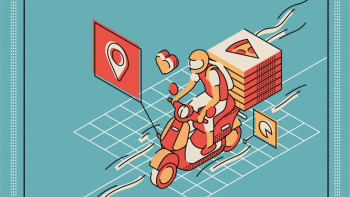


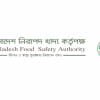


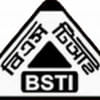
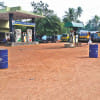


Comments